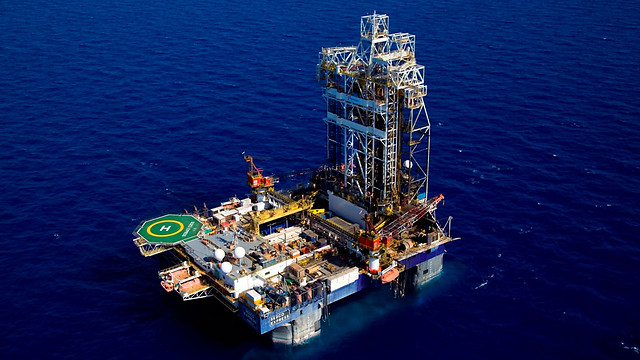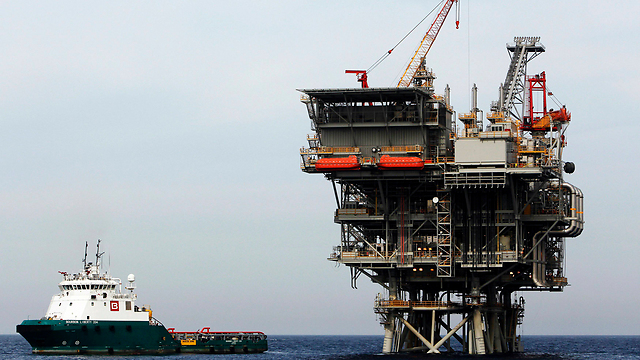

Delek Drilling, Noble Energy acquire 40% of Egypt-Israel gas pipeline
The parties, Delek, Noble Energy, and the Egyptian East Gas will pay $518 million for the Egyptian gas pipeline and the right to operate it; the deal will enable Israeli companies to pump gas to Egypt as early as 2018, assuming it will be in demand.
After several weeks of frantic negotiations, the Israeli drilling companies Delek Drilling LP, Noble Energy Inc., and the Egyptian East Gas Co. signed a deal to buy a 39% stake in the EMG pipeline to export natural gas to Egypt starting next year, the partners said on Thursday.
Talks about a future Israeli-Egyptian gas deal were reported a few months ago by Calcalist.
East Gas Co., the Egyptian gas company partnering with the Israeli drilling companies, is an Egyptian government company involved in gas transportation.
“The partnership intends to seal the transaction and begin piping natural gas from Israel to Egypt as early as the beginning of 2019,” Delek said in a statement.
Delek and Noble, which are partners in the Israeli gas fields, will each pay $185 million while the Egyptian East Gas Co will pay $148 million.
The deal will enable the supply of 64 billion cubic meters of gas over 15 years from Israel’s offshore Tamar and Leviathan fields to Egyptian company Dolphinus Holdings as part of the export deal signed in February.
Starting next decade, the parties will sign a contract for a fixed quantity of gas to be exported each year.
The deal was made against the backdrop of Egypt’s efforts to liberalize its gas market and open it up to trading by private companies.
“The ministry welcomes this new step by the private companies responsible for the commercial project’s implementation,” the spokesman of Egypt's Ministry of Petroleum, Hamdi Abdelaziz, said in a statement.
The spokesman added that the ministry is ready to consider permit requests from the private sector to help Egypt become a regional hub for gas trading.
To buy into EMG, which owns a 90 km subsea pipeline between Ashkelon in Israel and El-Arish in Egypt, the three partners formed a joint company called EMED.
Egyptian East Gas also owns a pipeline between El-Arish and Aqaba in Jordan, which the EMED companies said could be used to transport additional gas supplies in the future.
The use of Jordanian pipes is free of charge, so that in terms of Delek and Noble Energy, the deal "kills two birds with one stone."
The transaction depends on regulatory approval with a June 2019 deadline.
“This is a historic transaction, that renders Egypt a regional energy center and positions it in line with significant global energy centers,” said Delek CEO Yossi Abu.
Shares in Delek Drilling were up 3.6 percent on Thursday.
The EMG pipeline originally carried gas supplies in the other direction, when Israel was buying gas from Egypt. That deal collapsed in 2012 after militants in Egypt’s Sinai Peninsula carried out repeated attacks on the pipeline and EMG sued the Egyptian government for damages.
The pipeline again became an export option after the Tamar and Leviathan discoveries. Tamar began production in 2013 and Leviathan is due to come online in late 2019.
Under the new deal, EMG agreed to end arbitration with Egypt and drop claims against Cairo, Delek said.
At the start-up of the Leviathan field, Noble said it expects to sell at least 350 million cubic feet of natural gas per day to Egyptian customers.
Other shareholders in EMG are Thai energy company PTT (PTT.BK), state-owned Egyptian company EGPC and investment group MGPC. Egyptian East Gas holds a stake on its own.
Reuters contributed to this report.



















